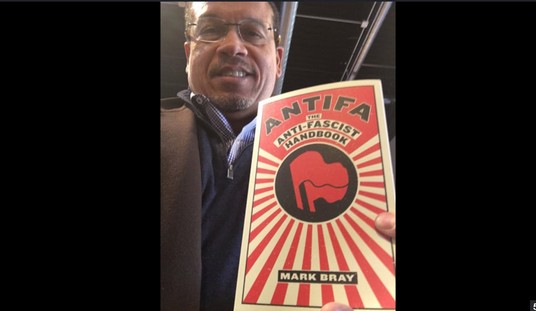Back in 2001 when I started Right Wing News (which is now a vanity website after it went out of business at the start of the year), the media landscape was entirely different. The Internet advertising market was too soft to interest big corporations; social media was a non-factor and many of the biggest conservative websites today didn’t exist.
What that meant was that if you were good, you could build an audience just doing 3-4 posts a day and you had a lot more fun doing it to boot. Back then, think tanks flew bloggers out to conferences; bloggers actually broke some big stories and we wrote about whatever we found interesting. It all went well enough for me that I was able to go full time in 2005.
After a few years of that, things started to change for me and for other bloggers for two reasons.
The first was that the conservative advertising market on the Internet got strong enough that it attracted people with money to spend on the game. Instead of everybody running blogs on a shoestring, you had professional people with hundreds of thousands of dollars to spend starting to compete. Eventually, that number climbed into the millions and it made it difficult for the stereotypical person blogging from home in his pajamas to compete. I saw that coming back in 2011 and wrote a piece called “The Slow, Painful Coming Death Of The Independent Conservative Blogosphere.” Back then, a lot of people were upset because I was telling them something they didn’t want to hear. But today, I still have old-school bloggers mentioning that piece to me as it turned out to be spot-on.
That put blogs on the ropes, but the final death blow was the revolution that social media turned out to be. Why go to a blog to get one person’s opinion when you can go on social media and get lots of opinions? Right Wing News had a solid group of commenters before social media came along, but how could our group of a few dozen people compete with the millions of people chatting on Facebook or Twitter? Social media was not only a destination; it became the place you went to get more traffic for your website. Of course, as this Oatmeal cartoon shows you, that turned out to be a trap:
lol pic.twitter.com/VSyJDmqHDW
— Matthew Inman (@Oatmeal) October 25, 2017
If paying Facebook more money than you can make back in advertising to make sure your own followers can see what you post sounds appealing to you, Facebook has you covered.
That being said, social media in general and Facebook in particular changed the game. That was doubly true for us because unlike the bigger Facebook pages at the time, we had already built a name for ourselves in the blogosphere. Since people had heard of us, our Facebook page grew relatively quickly (and mostly organically) to 3.5 million followers. As you might imagine, this made a huge difference in our traffic numbers. How huge?
Well, prior to creating a Facebook page, our best day was approximately 89k page views; our best week was about 473,000 page views and our best month was around 1.75 million page views. On the other hand, at our peak on Facebook, our best day was approximately 1.49 million page views; our best week was about 7.28 million page views and our best month was around 27 million page views. Suffice it to say, I understood how to use Facebook very well; conservatives loved our content and that allowed us to become a top 10,000 in the world website.
There turned out to be three big problems with that business model.
- There was no replacement for Facebook. No other social network, no other traffic source and no combination of them could replace the traffic or could even come close to replacing the traffic we were getting from Facebook.
- Facebook’s users tend to be loyal to Facebook, not the websites where they get their news. So, we had tremendous numbers of people reading what we had to say, but when they were done, they went back to Facebook and waited for the next link they were interested in instead of coming to Right Wing News each day.
- Facebook grew increasingly hostile to all the pages on its website in general and to conservative websites in particular. This accelerated dramatically after Trump won the 2016 election and the mainstream media started howling about “Russian ad buys” and “fake news” (more on that later). The idea that either was a factor in the election is laughable to people who know what they’re talking about, but it gave the liberals at Facebook a great excuse to accelerate their destruction of conservative pages. Today, if you look at their promoted “trending news,” you’ll find that it’s almost entirely made up of liberal sources. It’s not so much that Facebook doesn’t want news on its site, it’s that it wants to control which news it is that you see.
Let me also note that I have never seen anyone say this in print, but Facebook created a lot of the problems that came to plague its service.
For example, when pages could get out to the audiences that signed up to read what they had to say, the headlines weren’t as outrageous. When Facebook dramatically lowered the reach of pages, you started seeing tricks like clickbait (You’ll never look at Trump and Hillary the same again after you see these pictures!) starting to get more traffic. As Facebook cut more and more people off from their audiences, pages started running the most popular posts over and over again. After all, if only a small fraction of your readers were going to see it, why not run it into the ground? The further Facebook cut the reach, the more pages felt compelled to go to further extremes to be seen. It’s an ugly scene and it did help contribute to some of the disasters for our country that you’re about to read.
1. The News Is Dumbed Down: One of the biggest factors in getting a story to take off on Facebook was to get your entire audience clicking on it. That meant if you put a story out that everyone didn’t get, it wouldn’t be that successful. In other words, you don’t say “Mike Pence,” you say “Trump’s Vice President” because a certain percentage of people won’t know who Pence is and you need their clicks. You don’t cover boring topics no matter how newsworthy they may be; you avoid intellectual topics and you even try to stay away from things that aren’t universally agreed upon in your ideological niche. Just as MSNBC isn’t going to give credit to Trump if he cures cancer, we weren’t saying any nice things about Hillary because our audience didn’t like her. Even nuanced articles had to go away because audiences want strong opinions, not “We are more right than wrong, but there are exceptions.” So, if those things didn’t work, what did? Well, here’s an actual quote from an email I sent to the people picking stories for Right Wing News to help them know which stories to choose:
Does your story have genuine news value, an emotional hook or a celebrity involved? Is it wild sounding or so appalling you go, “Wow, I can’t believe people actually do that?” If your story doesn’t meet those criteria, don’t run it. Sure, you can do everything right and still come up short sometimes, but if you do this right, you’ll generally put up decent numbers.
Put another way, Kim Kardashian saying something about Trump or a liberal protester trampling on the American flag would be a much bigger story than a Republican saying the dumbest thing imaginable or a great new trade deal signed between the United States and China. This sort of thinking is now the rule, not the exception for most Internet outlets. There are very few news outfits of any sort that make a genuine attempt to explain both sides and, quite frankly, intelligent stories about topics that aren’t twisted for partisan ends are few and far between. Most of the in-depth reporting you’ll find these days is just a roundabout way to stick a thumb in the eye of the people on the other side of the aisle, not a genuine attempt to explain a deep and complex issue. This is not surprising, given that….
2) Social Media Is A Confirmation Bias Machine: Most people on social networks start by following people that they like, admire, and agree with. Typically, this leads to people receiving more confirmation of what they already believe. If they receive information contrary to what they believe, they will refuse to share it at best or block/mute the person that sent the information they did not agree with at worst. Over time, this tends to lead to an increasingly perfect feedback loop that confirms every bias that people had going in.
It has also changed what people expect from their news sources. Most people don’t want nuance or both sides; they want blatant propaganda that matches up with the worldview they’ve had reinforced at every turn on social media. Why put out a new article that contradicts what your viewers want and expect when you know it will die on social media, won’t be appreciated, and may lead to your viewers tuning you out entirely for sending them unpleasant news? If people want to hear what they already believe repeated back to them in new and exciting ways, everyone from The Wall Street Journal to The New York Times will try to give them exactly that. However, that creates another serious problem…..
3) We Don’t Share Facts Anymore: Liberals have always been able to cocoon themselves off in their own little world where they only hear from left-wing news sources. Conservatives used to not have that option because liberal sources were too ever-present. But they do now and they seem to take full advantage of it. What this means is that a hot Trump “scandal” that is everywhere in the liberal media may be laughed off on the Right as a joke, if they even hear about it at all. It worked the exact same way with Obama. The stories covered by the Left and Right are often completely different, and even if they are the same, the spin will be much different. It’s gotten to the point where the Left and Right almost live in parallel realities. Of course, that has dramatically increased the amount of tribalism you see in politics and helps lead to…
4) The Real Fake News Problem: There certainly have been social media websites that focused on making up stories for fun and profit. In the big scheme of things, they probably didn’t make much of a difference. However, the nature of social media is that it rewards exciting headlines, not credible sources. Being accurate used to be a really big deal. It still is to me. In fact, here’s a quote from an email I sent out to the Right Wing News staff last year:
Before you assign out a headline OR write a story, ask yourself some pertinent questions.
1) Is this honest?
2) Is the headline accurate?
3) Does the headline oversell the story? Are you suggesting let’s say that North Korea fired on the United States, but it just did a military exercise? Are you implying that there was a terrorist attack, but it was really just gun violence in Chicago? This matters A LOT.
4) Would you be disappointed if you clicked on the headline and saw what the story is all about?
Don’t assign stories that don’t meet those criteria AND if you are writer, I don’t want you to write a story that doesn’t meet that criteria. Liberals are going to attack us as “fake news” and “liars” and I don’t ever want that to be true. So don’t assign or write any article that you feel misleads our readers.
That’s vitally important.
All that being said, I hate to say it, but honesty is much less important than it used to be to the general public. For one thing, people who have an appetite for propaganda can be more interested in intentions than results. The attitude is, “Sure, the outlet might not have gotten the story right, but at least it was on the side of the angels.” Additionally, social media isn’t about credibility, it’s about feeding people what they want. The more people click on something, the more they like it and such, the more the social media algorithms reward it with traffic. So, how do you get someone to click on a story? The honest way to do it is to be very “aggressive” with your headline. By that, I mean that this headline, “Is Robert Mueller Conflicted In Trump Probe?” inspired this headline that we did, “The Fix is In: Special Counsel Robert Mueller Has MASSIVE Conflict of Interest in Trump Probe.” Which one do you think would draw more traffic on Facebook? Number 2? Ding, ding, ding, ding! We have a winner. This sort of aggressiveness has become the rule on social media. The problem is that it can very easily turn into a headline that is so aggressive that it no longer matches the story. That is not a rare occurrence on the web or in the mainstream media.
The other thing to keep in mind is that if 10 outlets are all doing the same story, they’re in a sense sharing a pool of traffic. On the other hand, if you are doing a unique story, you are getting ALL the traffic. Unfortunately, finding “unique” stories is extremely difficult and original reporting is very expensive, so people cheat. What that means is that if you have a bizarre interpretation of a story, run a conspiracy theory or write about what some obscure, but inflammatory rando said on Twitter, it can be a unique story. That means it can go very big. Then you’re rewarded with lots of traffic and if you’re wrong, well, remember what I said about exciting headlines trumping credibility on social media. It was so bad that I flat out gave our story pickers a list of prominent conservative outlets that they could not use as a source on stories because they weren’t reliable. Put all this together and you end up with what may be the worst problem of all, which is….
5) Trolling Is Now The Rule, Not The Exception: Trolls used to be largely thought of as socially maladjusted losers. Then, somewhere along the line, people realized that trolling helped build up a Twitter following. See, people on Twitter are not about wisdom, they’re all about car crashes. Say something mind-numbingly stupid enough to get the attention of the other side and you will be hit with an avalanche of abuse. Sounds terrible, right? Except you’ll also get hundreds, if not thousands of new followers as well. Build enough followers and you’ll be treated as if you’re significant and get one of those neat blue checkmarks, signifying that you’re a somebody who has been verified by Twitter (see, here’s mine!). Combine the potential follower bounces from being insulting with the confirmation bias of social media that makes people think the slightest deviation from their agenda means someone is the devil and trolling has gone mainstream. In fact, it has gone so mainstream that not only is President Donald Trump a notorious Twitter troll, his trolling of the Left is one of the things many of his most hardcore supporters like best about him. Everyone in America seems to love the idea of bipartisan solutions to issues, but it’s hard for anyone to work together when people on both sides of the aisle bend over backward to irritate each other as much as possible on a daily basis.









Join the conversation as a VIP Member